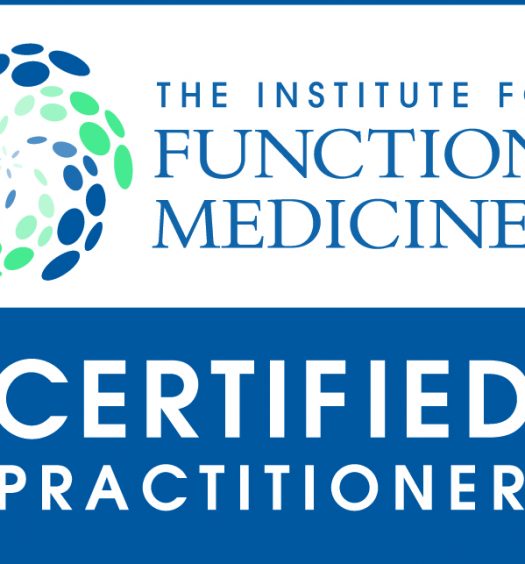When was the last time you felt truly well? Could Functional Medicine be the future of healthcare?
At Eat Drink Live Well we use a functional medicine approach in our nutrition clinic, but we find, if we’re honest, that most people haven’t got a clue what this means.
However, if you can get beyond the ‘functional’ jargon and buzzwords, it’s actually a pretty simple concept.
It simply asks ‘why?’. Why are these symptoms here now, what’s the root cause, and how can we best intervene?
What is Functional Medicine?
Functional Medicine is a different way of viewing health and disease. It’s a sensible approach where practitioners spend a lot of time understanding a client’s history, researching before we even meet you. We pay attention to individual interactions between genetics, diet, environment and lifestyle – all factors that can influence long-term health and chronic, complex disease. It’s based on the latest medical research, rather than dubious studies or anecdotal evidence. The result is a personalised approach to health – one that is unique to you and only you – based on your unique genes, diet, environment and lifestyle.
 It can help to view the Functional Medicine model in terms of a plant, or tree. If leaves on a tomato plant are yellowing, or dropping off, or if it isn’t bearing fruit, we’ll feed or water it differently or change it’s environment. It’s not rocket science – we know that sticking the leaves back on won’t help. We need to understand why they’re falling off in the first place.
It can help to view the Functional Medicine model in terms of a plant, or tree. If leaves on a tomato plant are yellowing, or dropping off, or if it isn’t bearing fruit, we’ll feed or water it differently or change it’s environment. It’s not rocket science – we know that sticking the leaves back on won’t help. We need to understand why they’re falling off in the first place.
 Functional Medicine is the same. It looks at the underlying cause of health conditions. It’s exciting because, despite our genetic predisposition, experiences and beliefs, our ‘roots’ are influenced by simple factors that we can modify: nutrition, sleep, relaxation, exercise, stress, social interaction and relationships. If we feed our ‘roots’ properly, our ‘leaves’ have a much higher chance of being healthy. In fact these ‘roots’ (or Modifiable Lifestyle Factors in Functional Medicine terminology) are the very essence of what Eat Drink Live Well is about.
Functional Medicine is the same. It looks at the underlying cause of health conditions. It’s exciting because, despite our genetic predisposition, experiences and beliefs, our ‘roots’ are influenced by simple factors that we can modify: nutrition, sleep, relaxation, exercise, stress, social interaction and relationships. If we feed our ‘roots’ properly, our ‘leaves’ have a much higher chance of being healthy. In fact these ‘roots’ (or Modifiable Lifestyle Factors in Functional Medicine terminology) are the very essence of what Eat Drink Live Well is about.
Functional Medicine is empowering, and is a partnership between practitioner and patient. As a result, you can feel in charge of your own health and disease outcomes, rather than reliant on a multitude of different medical professionals. You have the power to enhance your own health – we’re just there to guide and support you.
How does Functional Nutrition fit in?
Functional Nutrition is at the very centre of Functional Medicine. Food can sustain health, or contribute to disease. Food is more than calories – it’s information, telling our cells how to behave.
Functional Nutrition is about personalising nutrition programmes – there is no one right diet for all of us. We have different genetics, different backgrounds, and we live in different environments all with different lifestyles. What keeps one person healthy simply isn’t the same as for another so makes no sense at all to prescribe one healthy ‘diet’ that we should all be following.
It all sounds good but how does this work in practice?
We’ve established that a functional medicine approach looks at causes of imbalance.
Take skin for instance. Spreading a cream on an inflammatory skin condition may calm the skin, but it won’t actually address the cause of the inflammation. In functional medicine we might look to the digestive system as a contributory factor instead. We might use some functional laboratory tests to really fine-tune the programme. We might look at your genomic tendency towards inflammation and use foods or higher level supplements to modulate the inflammatory response, particularly if your genes indicate this. We might recommend a stool test to assess how the balance of your own gut micro biome may be switching ‘on’ inflammation. We might explore food intolerances or allergies via an elimination diet or testing. And we’ll definitely look at a personalised, therapeutic diet. All of these can help to address the potential root causes of the inflamed skin.
Functional Medicine is really a common sense approach to health, with three basic steps:
- Figure out what’s out of balance
- Identify and remove dietary and other modifiable environmental factors that are taking the body further away from balance (what you need less of)
- Add in dietary and environmental changes that can help the body move back into balance (what you need more of)
Sounds simple really doesn’t it?
So take a moment to think. When was the last time you felt truly well? If you can’t quite remember, or it seems quite a time ago, perhaps it’s time to consider a functional medicine approach to health.
We hope you enjoy this blog post, let us know your thoughts in the comments below or on social media – we’re on Twitter, Facebook, Instagram and Pinterest. And don’t forget to sign up to our newsletter to receive a monthly update of our recipes, nutrition tips and expert advice.




